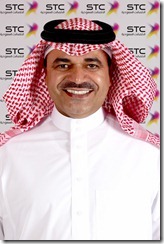Ericsson and STMicroelectronics have decided to call time on ST-Ericsson, their loss-making wireless chip joint venture.
As part of the closing down process, Ericsson and STMicroelectronics have each agreed to take some of ST-Ericsson’s assets in-house.
Ericsson has bagged the design, development and sales of the LTE multimode thin modems (including 2G, 3G and 4G multimode), while STMicroelectronics absorbs other existing ST-Ericsson products, plus certain assembly and test facilities.
The formal transfer of assets, subject to regulatory approvals, is expected in the third quarter.
Once the asset split is completed, there is a plan for Ericsson to assume around 1,800 ST-Ericsson employees and contractors, most of who are based in Sweden, Germany, Italy and China. It is also proposed that STMicroelectronics takes on about 950 of the joint venture’s employees, mainly in France and Italy.
The process of closing down the remaining parts of ST-Ericsson, which have not been taken up by the parent companies, has already started. About 1,600 jobs will be cut worldwide.
The announcement to wind down the business comes only days after a Bloomberg report revealed the company’s parents had failed to find any takers for the business, despite searching for a buyer for three months.
According to Reuters, STMicrolectronics is expected to rack up cash costs of between US$350 million and US$450 million as a result of the shutdowns and restructuring.
Ericsson, in a statement, says it has made provisions of SEK3.3 billion (US$510 million) to cover costs related to the wind down of ST-Ericsson. The Swedish manufacturer reckons that the multimode thin modem business it has taken on, to be reported as a standalone segment, will generate operating losses of around SEK500 million in the fourth quarter. The loss primarily relates to R&D expenses, says Ericsson.
To oversee the transition process, Carlo Ferro, ST-Ericsson’s COO, has been appointed as the joint venture’s chief executive. He takes over from Didier Lamouche on April 1, who recently announced his departure to pursue other opportunities.




